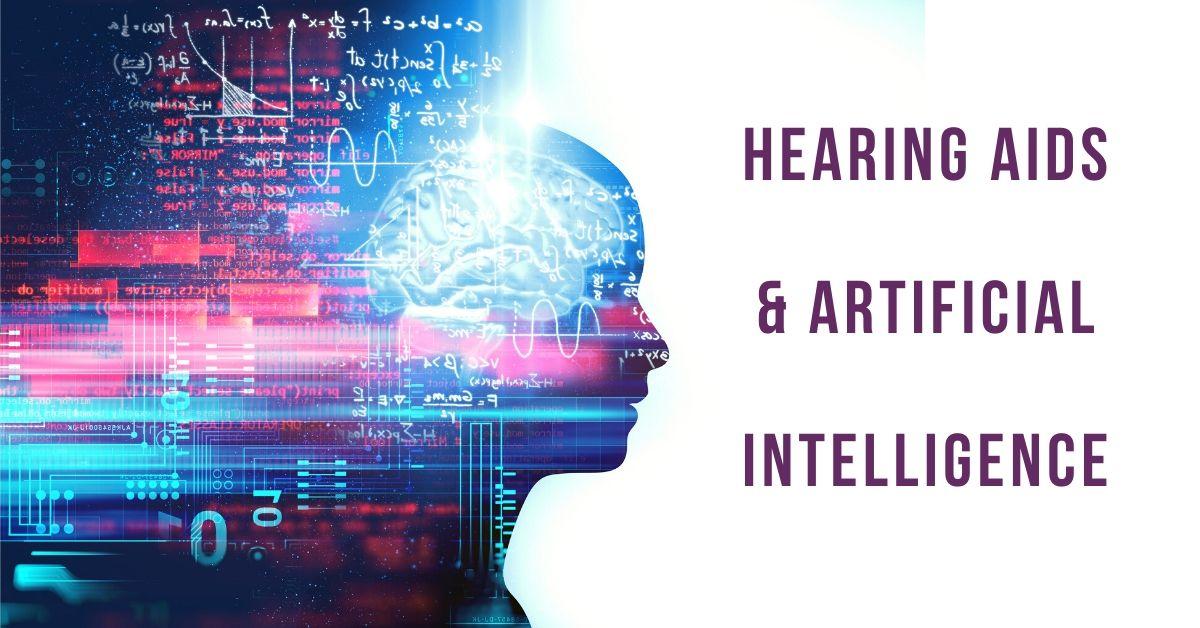
- Understanding the Different Types of Assistive Listening Technology - April 15, 2025
- Emergencies That Can Occur With Hearing Aids - April 5, 2025
- When to Consider a Second Opinion for Hearing Health - March 25, 2025
Hearing aids are smaller and more advanced than ever! These electronic devices continue to evolve as technology develops over time. Like our smartphones, televisions, and cars, new models are continuously designed to increase efficiency and capability. Today, there is a substantial range of hearing aids that are available to meet a person’s specific hearing needs. They can be highly customized, there are a variety of features, and technologies that enhance a person’s overall experience and allows them to better integrate and navigate their daily life with hearing loss. The latest technology being further explored, developed, and applied to hearing aids is artificial intelligence!
Hearing Aid Innovations
As the world we live in continues to change and be shaped by the technologies of the time, hearing aids have adapted to better integrate with this technology. So, hearing aids have long used advancing tech to provide people with dynamic listening experiences. Hearing aids have been able to multifaceted and intelligent things like:
- Bluetooth connectivity: using Bluetooth technology, hearing aids can connect to other electronic devices like your smartphone, TV, computer, speaker etc. and access audio directly. This allows you to stream phone calls, shows, music, podcasts etc. directly to your hearing aids.
- Smartphone link: which allows hearing aids to be paired with your smartphone and access certain programs and applications on your phone. This includes GPS and if you have programmed specific destinations, your hearing aids can automatically adjust when you have arrived to that location.
- Mitigate noise: hearing aids have noise cancellation features (like headphones) which reduce background noise.
These features allow people with hearing loss to hear more clearly in various environments and use other technology with greater ease.
Artificial Intelligence
Artificial intelligence (AI) is a field of computer science that designs, researches, and applies advanced programming that allows computers (and other machines) to use intelligent solutions to solve complex problems. This is done by using different technologies that include algorithms, historical data, behavior patterns etc. and making predictions on future behavior. This sounds really complicated and dense but we are actually always interacting with AI. In a lot of ways, we have become more and more reliant on AI which mimics human intelligence to do the work that saves us the time and energy! This includes what we would most likely consider to be basic things like:
- Search engines: on average, Google processes 40,000 searches every second which amounts to 3.5 billion searches per day! AI technology makes this possible by using algorithms to pull up the appropriate results for search queries.
- Email: the spam filter in your email inbox uses AI to identify junk mail. AI technology analyzes the email (sender, content, place of origin etc.) and determines if it is spam and discards it.
- Social Media: all social media platforms use AI in many ways. Some examples are – recommendations, facial recognition, suggested people to friend/follow, personalized feeds, filters etc.
- Online Ads: by now most of us know that online ads follow us around! Online ads use AI to identify the audience for their product which is based on your online history and searches.
- Other examples: whenever a site or application makes recommendations, that is using AI technology. We interact with this when we shop online, use Netflix, listen to music on streaming platforms etc. Additionally, voice to text messages and voice-based apps (Alexa, Siri, Cortana) use AI.
We are constantly engaging with AI and benefiting from the efficiency and convenience provided by this technology.
AI & Hearing Aids
The relationship between AI and hearing aids is developing in really exciting ways! In more recent years, AI has been used to make hearing devices more automated and comfortable for the user. Using algorithms and information from the wearer’s behavior, AI hearing aids can:
- Adjust automatically: when a person sets their preferences in different environments on their hearing aids, AI learns from and remembers this information. When the wearer enters a new setting, AI hearing aids can then analyze the environment and automatically adjust to the person’s preferences. This prevents the wearer from making manual adjustments every time they enter a new place with different levels of background noise.
- Hear voice more clearly: AI hearing aids can isolate the wearer’s voice from background noise so that the person can hear their own voice more naturally and clearly.
- Monitor health: using integrated sensors, AI hearing aids can track social engagement, physical activity, brain health etc.
As AI technology continues to merge with hearing aids, people will have more expansive options that can support you living your life as fully and as comfortably as possible!
